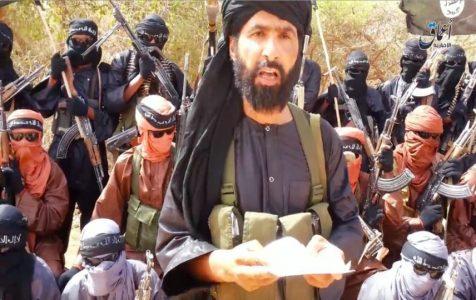
Niger Islamic State hostage: “They want to kill foreign soldiers”
When a team of American special forces hunting Islamic State fighters in Niger was ambushed and four of its soldiers killed, the attack last October was described as “a total tactical surprise” by the commander of US Africa Command.
Their deaths became a political scandal in Washington – where there was little awareness of US military operations in the region – and became notorious when Donald Trump, in a condolence call, told the widow of one of the dead soldiers that he “knew what he signed up for”.
“They had never seen anything in this magnitude – numbers, mobility and training,” said US Gen Thomas Waldhauser last month, presenting the results of the Pentagon investigation into the attack, which found “individual, organisational and institutional failures” leading up to the ambush.
But the same group that attacked the US-Nigerien team near the village of Tongo Tongo, close to border with Mali, had staged many attacks, including one of similar magnitude on an outpost of Niger’s national guard almost a year earlier.
In that attack, just like in Tongo Tongo, over 100 heavily-armed men suddenly appeared on motorbikes and in vehicles. They killed six Nigerien soldiers, and took two others hostage. Only one lived to tell the tale.
The Guardian has gained rare insight into the Isis-affiliated group through an interview with that soldier, who spent three months chained up as their hostage.
Abdoul Wahid, 28, talked to many of his kidnappers, who said they had no demands but just wanted to wage jihad, and spoke of wanting to kill foreign soldiers in particular. Wahid also witnessed them recruiting and training an army of children aged around 10.
After breaking the Ramadan fast in Niger’s capital Niamey last week, Wahid, off duty in a crisp short-sleeved shirt, sat in his mother’s room and described the chilly November morning in 2016 when the 17 soldiers at his post were attacked by a group of men. They were led by a skinny man called Aboubacar Chapori, also known as Petit Chapori, a key lieutenant of Abu Walid al-Sahraoui, leader of the Islamic State in the Greater Sahara (ISGS).
“We shot at them until we had no bullets left,” Wahid said. “By the end, six of our men were dead, including our chief. He was shot in the head in front of all of us, and two of us were taken hostage.”
Wahid was thrown into the back of a pickup, along with his 24-year-old friend Habib Isa, and the jihadist convoy sped off. Wahid and Isa had done their training together. “We were really close,” he said.
They were driven across the dry scrub of eastern Niger. Wahid knew the region well and recognised where he was being taken. When they reached the Tongo Tongo area, they stopped and pulled Isa down from the pickup.
“They slit my friend’s throat. They said he was a dog,” Wahid said, maintaining his military bearing, but his voice giving way just a little. “Then they tied my hands and feet together and blindfolded me. They said: ‘You see your friend? You’re next.’”
But they kept Wahid alive. Sitting barefoot and crosslegged on his mother’s mat, Wahid demonstrated how they strung him up in the back of the pickup, his back towards the cab, arms over his head. They drove like that for two days, crossing the Malian border to join their brothers. As they sped through hamlets en route, Wahid heard villagers cry “Allahu Akbar” – Allah is great. He was deep in enemy territory, he realised.
It is not known how many members ISGS has; some analysts say less than 100. But Wahid estimated that he saw up to 600 fighters, and said they told him he had only seen half their total number.
Since the Tongo Tongo attack, Niger’s interior minister Mohamed Bazoum said the group had been significantly weakened, with only a few hundred survivors.
But according to Malian and Nigerien security sources who spoke to the Guardian on condition of anonymity, Tongo Tongo brought Sahraoui respect and money from Isis and its other affiliates, such as Boko Haram in neighbouring Nigeria.
Source: The Guardian





